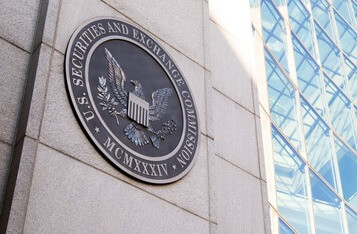 © Submitted by Financial Post OSC Chairman Grant Wingo.
© Submitted by Financial Post OSC Chairman Grant Wingo.The head of the Ontario Securities Commission says local crypto regulations are necessary to protect investors here, even amid suggestions that unregulated global crypto firms could be pushing Ontario investors to circumvent the rules by using VPN technology use to gain access to their stealth locations.
Grant Wingo, CEO of Canada's largest financial markets watchdog, says international cryptocurrency trading and buying platforms operate without the permission or jurisdiction of their home country where their target investors reside, amid "regulatory ambiguity"; in favor of regulation in Canada.
Global crypto platforms must now register with the Ontario Markets Regulator or face bans or other penalties.
“You have to decide if it is worth seeking access to Canadian investors under Canadian law,” said Wingo, who spoke on crypto regulation from the perspective of the OSC at a luncheon in Toronto on Thursday.
"This has been effective because many international platforms don't want the stigma of censorship in Canada, which could hurt their credibility and global ambitions."
Wingo said he doesn't see politics as a regulator picking "winners and losers" because the OSC takes a technically neutral approach when evaluating new platforms and products .
"The basics of regulation apply equally to stocks, bonds and cryptocurrency contracts," he said.
In June, the OSC filed two successful enforcement lawsuits against “complaint-free” crypto-asset trading platforms; Comparison with Bybit Fintech Ltd. And the Capital Markets Court ruling against KuCoin, which permanently banned the market and imposed a “significant” rating. fines.
Wingo said the CSO would seek the "most severe consequences" of any platform that encourages investors to use virtual private networks, or VPNs, to obfuscate their identities and website to invest in cryptocurrency. This technology has been used for years to deliver TV shows and films to countries where it is not available, and strict procedures are rare.
"Compliance systems are improving rapidly and we need to be vigilant," Wingo wrote. "The solution to the remaining risks ultimately lies in increased international regulatory cooperation."
OSC has been criticized by some proponents who say early regulations hampered Canada's ability to grow crypto giants. A recent statement from two Consumer Choice Center officials, to which Wingo responded in a LinkedIn post, said Canada's "twisted" regulatory system, and Ontario's in particular, is "twisted," broken, and riddled with pitfalls.
"Unfortunately, the debate about adequately regulating the crypto industry is riddled with misinformation, whether intentional or not," Wingo said in a speech to the Canadian Economic Club on Thursday.
"A lot of this is being driven by acquired players taking advantage of the lack of organization and the resulting confusion."
OSC has taken a number of regulatory actions in the crypto sector over the past few months. However, Wingo said that "no hassle" regulation by Ontario's regulator should be temporary for many crypto firms that deal with retail clients. Eventually, this requires membership in the Investment Industry Regulatory Organization of Canada (IIROC), the national self-regulatory body for investment dealers, which governs conduct, prudential regulation, and market oversight.
Wingo said IROC is the "right target" for most of these companies when working with retail investors, adding that he believes cryptocurrency should receive a different regulatory treatment than other services it offers. A similar approach in the financial sector as a "completely wrong" approach. . .
"It is not public policy to bar platforms that trade the most speculative assets from IROC, but to demand traders involved in capital formation for companies that can grow our economy and support sustainable retirement savings," he said. " That's the definition of an asymmetric pitch."
Meanwhile, OSC doesn't help.
On Friday, the regulator alleged that an Ontario man committed securities fraud in a $51 million token bid and accused Troy Richard James Hogg of “investing a significant amount of money” for non-crypto purposes like buying to have swept from real estate. OSC filed a lawsuit against Hogg and its subsidiaries just as the US Securities and Exchange Commission announced that it had indicted Hogg and several US citizens in the US District Court for the Southern District of Florida.
None of the allegations have been proven.
In a speech on Thursday, Wingo acknowledged the diversity of use cases and the attractiveness of cryptocurrency as an investment, noting that the global market value of crypto assets is still close to $1 trillion despite a nearly 70% drop in recent months lies. Research by the regulator shows that over 30% of Canadians plan to buy crypto assets in the next year.
"It is clear that the blockchain technology on which crypto assets are based has great potential. It has many applications for businesses, organizations and governments that will benefit from immutable transaction records," he said.
However, adding that the cryptocurrency market as a whole is "extremely volatile" and that most investments remain largely speculative, he advocates regulation rather than a free market and laissez-faire approach.
"The massive losses, platform outages and scams we've all heard about are having a devastating impact on people's financial lives," Wingo said, referring to the 76,000 Canadian investors most of whom perished in the QuadrigaCX crash . A total of more than 100 million dollars.
"The freedom of bad actors to rob their citizens is not a freedom the market would prefer."
• Email: bshector@nationalpost.com Twitter:

